Editor’s Choice ► Recommended Reading
►Try Audible and Get Two Free Audiobooks
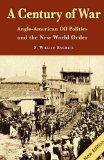 A Century of War: Anglo-American Oil Politics and the New World Order
A Century of War: Anglo-American Oil Politics and the New World Order
F. William Engdahl (2012)
This Book is a Gripping Account of the Murky World of the Anglo-American Oil Industry and its Hidden Role in World Politics. — William Engdahl takes the reader through the history of how seven giant oil companies – five American and two British – developed a controlling grip on the world’s economy unprecedented in history. This is no ordinary history of oil.
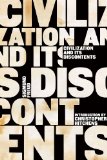 Civilization and Its Discontents
Civilization and Its Discontents
Sigmund Freud (1930)
Written in the decade before Freud’s death, Civilization and Its Discontents may be his most famous and most brilliant work. It has been praised, dissected, lambasted, interpreted, and reinterpreted. Originally published in 1930, it seeks to answer several questions fundamental to human society and its organization: What influences led to the creation of civilization? Why and how did it come to be? What determines civilization’s trajectory? Freud’s theories on the effect of the knowledge of death on human existence and the birth of art are central to his work.
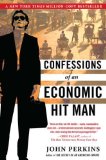 Confessions of an Economic Hit Man
Confessions of an Economic Hit Man
John Perkins (2005)
From the author of the phenomenal New York Times bestseller, Confessions of an Economic Hit Man, comes an exposé of international corruption, and an inspired plan to turn the tide for future generations.
With a presidential election around the corner, questions of America’s military buildup, environmental impact, and foreign policy are on everyone’s mind. Former Economic Hit Man John Perkins goes behind the scenes of the current geopolitical crisis and offers bold solutions to our most pressing problems. Drawing on interviews with other EHMs, jackals, CIA operatives, reporters, businessmen, and activists, Perkins reveals the secret history of events that have created the current American Empire.
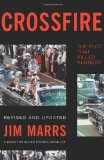 Crossfire: The Plot That Killed Kennedy
Crossfire: The Plot That Killed Kennedy
Jim Marrs (2013)
What really happened in Dallas on November 22, 1963? Was the assassination of John F. Kennedy simply the work of a warped, solitary young man, or was something more nefarious afoot? Pulling together a wealth of evidence, including rare photos, documents, and interviews, veteran Texas journalist Jim Marrs reveals the truth about that fateful day.
Thoroughly revised and updated with the latest findings about the assassination, Crossfire is the most comprehensive, convincing explanation of how, why, and by whom our thirty-fifth president was killed.
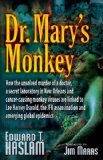 Dr. Mary’s Monkey
Dr. Mary’s Monkey
Edward T. Haslam (2007)
The 1964 murder of a nationally known cancer researcher sets the stage for this gripping exposé of medical professionals enmeshed in covert government operations over the course of three decades. Following a trail of police records, FBI files, cancer statistics, and medical journals, this revealing book presents evidence of a web of medical secret-keeping that began with the handling of evidence in the JFK assassination and continued apace, sweeping doctors into coverups of cancer outbreaks, contaminated polio vaccine, the arrival of the AIDS virus, and biological weapon research using infected monkeys.
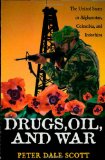 Drugs, Oil, and War: The United States in Afghanistan, Colombia, and Indochina
Drugs, Oil, and War: The United States in Afghanistan, Colombia, and Indochina
Peter Dale Scott (2003)
Peter Dale Scott’s brilliantly researched tour de force illuminates the underlying forces that drive U.S. global policy from Vietnam to Colombia and now to Afghanistan and Iraq. He brings to light the intertwined patterns of drugs, oil politics, and intelligence networks that have been so central to the larger workings of U.S. intervention and escalation in Third World countries through alliances with drug-trafficking proxies. The result has been a staggering increase in global drug traffic. Thus, the author argues, the exercise of power by covert means, or parapolitics, often metastasizes into deep politics – the interplay of unacknowledged forces that spin out of the control of the original policy initiators.
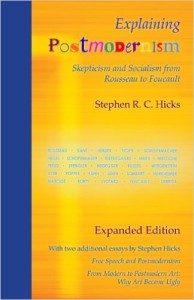 Explaining Postmodernism: Skepticism and Socialism from Rousseau to Foucault
Explaining Postmodernism: Skepticism and Socialism from Rousseau to Foucault
Stephen R. C. Hicks (2011)
Tracing postmodernism from its roots in Jean-Jacques Rousseau and Immanuel Kant to their development in thinkers such as Michel Foucault and Richard Rorty, philosopher Stephen Hicks provides a provocative account of why postmodernism has been the most vigorous intellectual movement of the late 20th century.
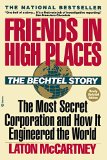 Friends In High Places: The Bechtel Story : The Most Secret Corporation and How It Engineered the World
Friends In High Places: The Bechtel Story : The Most Secret Corporation and How It Engineered the World
Laton McCartney (1988)
A must read for those that want to read between the lines. This is a story about the most secret corporation and how it engineered the world. You won’t believe just what this company has accomplished around the world, and there’s probably a good chance that you’ve never even heard of it. This national bestseller is absorbing, especially if your preference is business and geopolitical. If so, you will not be disappointed. And guess what? The story begins with ‘friends in high places’ at the infamous Bohemian Grove!
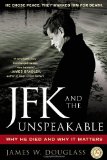 JFK and the Unspeakable: Why He Died and Why It Matters
JFK and the Unspeakable: Why He Died and Why It Matters
James W. Douglass (2010)
At the height of the Cold War, JFK risked committing the greatest crime in human history: starting a nuclear war. Horrified by the specter of nuclear annihilation, Kennedy gradually turned away from his long-held Cold Warrior beliefs and toward a policy of lasting peace. But to the military and intelligence agencies in the United States, who were committed to winning the Cold War at any cost, Kennedy’s change of heart was a direct threat to their power and influence.
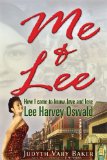 Me & Lee: How I Came to Know, Love and Lose Lee Harvey Oswald
Me & Lee: How I Came to Know, Love and Lose Lee Harvey Oswald
Judyth Vary Baker (2011)
Judyth Vary was once a promising science student who dreamed of finding a cure for cancer; this exposé is her account of how she strayed from a path of mainstream scholarship at the University of Florida to a life of espionage in New Orleans with Lee Harvey Oswald. In her narrative she offers extensive documentation on how she came to be a cancer expert at such a young age, the personalities who urged her to relocate to New Orleans, and what led to her involvement in the development of a biological weapon that Oswald was to smuggle into Cuba to eliminate Fidel Castro.
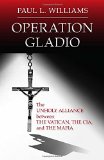 Operation Gladio: The Unholy Alliance between the Vatican, the CIA, and the Mafia
Operation Gladio: The Unholy Alliance between the Vatican, the CIA, and the Mafia
Paul L. Williams (2015)
This disturbing exposé describes a secret alliance forged at the close of World War II by the CIA, the Sicilian and US mafias, and the Vatican to thwart the possibility of a Communist invasion of Europe. Journalist Paul L. Williams presents evidence suggesting the existence of “stay-behind” units in many European countries consisting of five thousand to fifteen thousand military operatives.
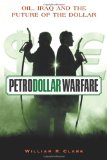
Petrodollar Warfare: Oil, Iraq and the Future of the Dollar
William R. Clark (2005)
The invasion of Iraq may well be remembered as the first oil currency war. Far from being a response to 9/11 terrorism or Iraq’s alleged weapons of mass destruction, Petrodollar Warfare argues that the invasion was precipitated by two converging phenomena: the imminent peak in global oil production and the ascendance of the euro currency.
Meticulously researched, Petrodollar Warfare examines US dollar hegemony and the unsustainable macroeconomics of ‘petrodollar recycling,’ pointing out that the issues underlying the Iraq war also apply to geostrategic tensions between the United States and other countries, including the member states of the European Union, Iran, Venezuela and Russia.
 Steve Jobs
Steve Jobs
Walter Isaacson (2011)
Based on more than forty interviews with Jobs conducted over two years—as well as interviews with more than a hundred family members, friends, adversaries, competitors, and colleagues—Walter Isaacson has written a riveting story of the roller-coaster life and searingly intense personality of a creative entrepreneur whose passion for perfection and ferocious drive revolutionized six industries: personal computers, animated movies, music, phones, tablet computing, and digital publishing.
 The Leipzig Connection (Basics in Education)
The Leipzig Connection (Basics in Education)
Paolo Lioni (1993)
In the shadows of the Bismarck’s totalitarian Germany in 1875, a little-known medical researcher laid the groundwork for a subject that in modern times was to bring American education to its knees–behavioral psychology. A latter-day disciple, B. F. Skinner, later wrote the book “Beyond Freedom and Dignity,” arguing that such ancient conceptions as these are luxuries our brave new world can no longer afford.
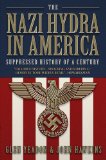 The Nazi Hydra in America: Suppressed History of a Century
The Nazi Hydra in America: Suppressed History of a Century
Glen Yeadon, John Hawkins (2008)
A piercing study of the tenacious roots of American fascism in our plutocracy, from robber baron days to Reichstag fire to the WTC atrocity and “Homeland Security.” This sweeping, 700-page documentary of the American oligarchy’s century-long project for world dictatorship is bound to be a landmark in the writing of American history. Includes a blow-by-blow account of the successful fascist assault and takeover of America’s media.
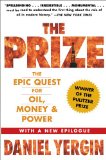 The Prize: The Epic Quest for Oil, Money & Power
The Prize: The Epic Quest for Oil, Money & Power
Daniel Yergin (1990)
Deemed “the best history of oil ever written” by Business Week and with more than 300,000 copies in print, Daniel Yergin’s Pulitzer Prize–winning account of the global pursuit of oil, money, and power has been extensively updated to address the current energy crisis. The Prize became a bestseller owing to its release date: it was published in October 1990, two months after the invasion of Kuwait ordered by Saddam Hussein and three months before the U.S.-led coalition began the Gulf War to oust Iraqi troops from that country. It eventually went on to win the Pulitzer Prize.
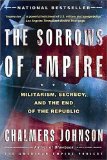 The Sorrows of Empire: Militarism, Secrecy, and the End of the Republic (The American Empire Project)
The Sorrows of Empire: Militarism, Secrecy, and the End of the Republic (The American Empire Project)
Chalmers Johnson (2004)
In the years after the Soviet Union imploded, the United States was described first as the globe’s “lone superpower,” then as a “reluctant sheriff,” next as the “indispensable nation,” and in the wake of 9/11, as a “New Rome.” In this important national bestseller, Chalmers Johnson thoroughly explores the new militarism that is transforming America and compelling us to pick up the burden of empire.
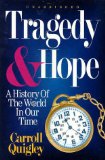 Tragedy & Hope: A History of the World in Our Time
Tragedy & Hope: A History of the World in Our Time
Carroll Quigley (1975)
A History of the World in Our Time by Carroll Quigley is the ultimate insider admission of a secret global elite that has impacted nearly every modern historical event. Learn how the Anglo-American banking elite were able to secretly establish and maintain their global power. This massive hardcover book of 1348 pages provides a detailed world history beginning with the industrial revolution and imperialism through two world wars, a global depression and the rise of communism.
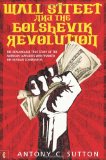 Wall Street and the Bolshevik Revolution: The Remarkable True Story of the American Capitalists Who Financed the Russian Communists
Wall Street and the Bolshevik Revolution: The Remarkable True Story of the American Capitalists Who Financed the Russian Communists
Antony C. Sutton (2012)
Why did the 1917 American Red Cross Mission to Russia include more financiers than medical doctors? Rather than caring for the victims of war and revolution, its members seemed more intent on negotiating contracts with the Kerensky government, and subsequently the Bolshevik regime. In a courageous investigation, Antony Sutton establishes tangible historical links between US capitalists and Russian communists.

